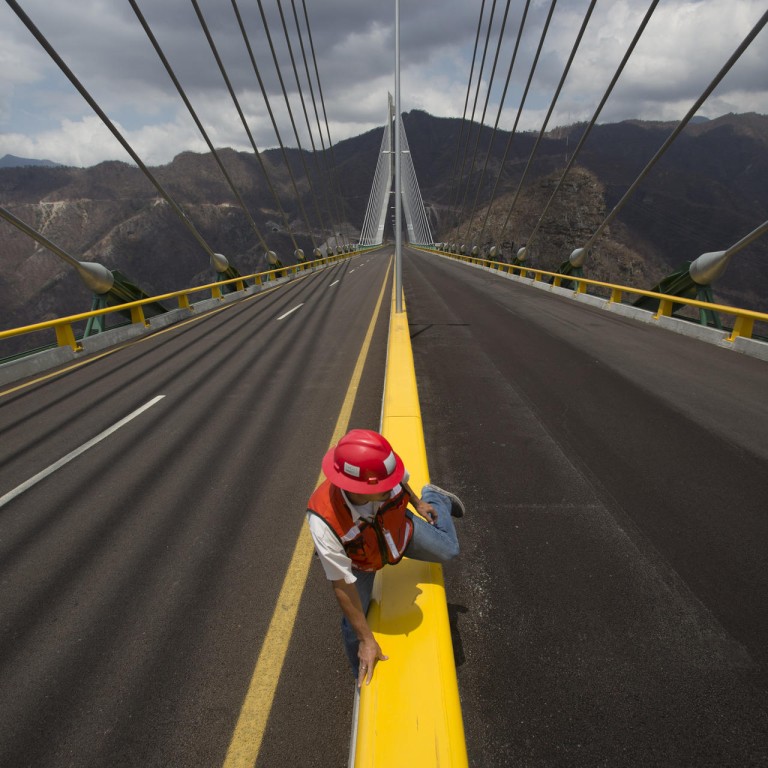
Chinese firms set to invest in Mexico's infrastructure push
Great Wall Asset Management is one of several firmsclose to investing US$450 million in infrastructure in the Latin American country
As President Xi Jinping leaves Latin America for the second time in almost 12 months with billions of dollars worth of freshly signed investment deals in hand, the groundwork he laid a year ago after a trip to Mexico is beginning to pay off.
A clutch of Chinese companies are in advanced talks to invest at least US$450 million in the country in the initial phase of an infrastructure-led spending spree that the Mexican government has calculated to be worth US$590 billion between this year and 2018.
About 40 per cent of that gigantic figure will come from the private sector, including foreign firms, and Gerardo Salazar, the chief executive of Banco Interacciones, the largest Mexican infrastructure bank, was negotiating hard to get deals done, he said.
China Great Wall Asset Management, a state-owned firm financed by the Ministry of Finance, was close to making a decision to set up a private equity fund in Mexico to invest in infrastructure there, with an initial fund size of US$150 million, Salazar said.
Great Wall Asset Management declined to comment.
Separately, Envision Energy is in the advanced stages of entering the Mexican market through renewable energy projects, specifically wind farms. These projects would represent a value of about US$150 million, Salazar said.
In addition, Banco Interacciones was close to forming a joint venture with an undisclosed Chinese company, which would invest US$150 million in a project in Mexico, he said.
The Mexican government's infrastructure plan includes investment in transport, water, energy, health and education.
"Opportunities have opened up for foreign investors," said Salazar, who is planning to visit Shanghai, Hong Kong and Seoul in September.
"In Hong Kong and Shanghai, we hope to review our relations with several Chinese companies. We have contacts with Chinese companies which are eager to participate in Mexico's energy reform," he said.
For example, some Chinese firms are interested in supplying platforms and pipes to Mexican oil projects, while others are interested in exploring the Mexican car sector.
On June 25, Salazar was in Singapore, where he signed a memorandum of understanding between Banco Interacciones and Hyflux, a global water firm based in the city state.
Under the memorandum, the two organisations will cooperate on an exclusive basis to explore Mexican water and infrastructure projects, which will leverage Hyflux's technologies and its expertise.
Singapore, South Korea, Hong Kong and mainland China were not competitors for Mexican business opportunities, Salazar said. "We are looking at the different capabilities of entrepreneurs in South Korea, Singapore and China."
For example, Singapore offers water expertise, while Chinese entrepreneurs are strong in energy projects.
Salazar noted that 10 to 15 years ago, when the Mexican economy was reliant on manufacturing, his country perceived China - which was then regarded as the "world's factory" - as a competitor.
"In the last two to three years, relations between the two countries have changed for the better. We are complementary rather than competitive," he said.
However, China was still one of the smaller investors in Mexico, Salazar said.
"China is underrepresented in Latin America," he said.

